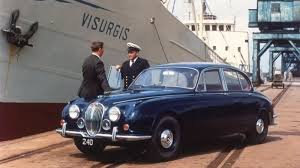- Joined
- Jan 21, 2005
- Messages
- 30,556
- Location
- Mittel England
- Car
- Smart ForFour AMG Black Series Night Edition Premium Plus 125 Powered by Brabus
Exactly, both Poulter and Tim, impressive, obsessive workaholics that they are, can weather this change, but interest rates are certainly about to blow the fluff off some of the top end. Which is not a bad thing. Better a gentle adjustment than a crash as the days of "free money" come to an end.
Even with a $25 million Ferrari collection, like Ian's, probably half of his net worth, it must be a wee bit stressful to see the days of easy capital growth coming to an end.
Still, as the lawyers say "You can't take it with you. (Only your wife can.)"
Last week I listened to a podcast by The Intercooler, and they were talking about a quarterly “luxury” car finance market report issued by JBR Capital who sponsor them.
Whilst described as “luxury” it really means “expensive” because it includes all types of expensive cars including supercars, SUVs, EVs, as well as traditional luxury cars.
The report looks at the finance deals that JBR Capital have actually done during the period (I believe it might be a quarterly report), and offers insights and narrative.
During the podcast Andrew Frankel and Dan Prosser mused on those insights, like the average value of cars financed (£105k) average salary of borrowers (£155k), etc.
It said that there were hints that luxury car finance market “might” start cooling off because the dramatic growth in recent years has plateaued for the first time.
They mused over why that might be for a while. but what stood out was that they barely mentioned interest rate increases at all - if they did then it was in passing.
I suspect that the market has already dipped. The total amount lent may have been increasing , but that’s in part because the cost of the cars has increased significantly too.
I would imagine that even their wealthier clients will be thinking differently about how much they borrow, as even if they can easily afford it they may not think it’s worth it.
I would be very surprised if the total borrowing isn’t already falling. As you say let’s hope that it’s a gentle market adjustment rather than Armageddon.



